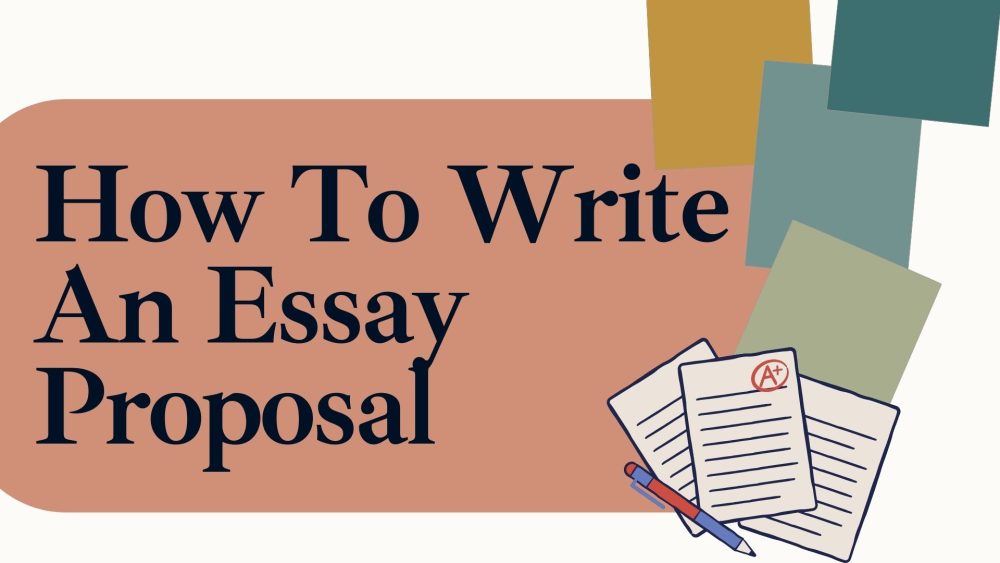Interpretive essays unlock profound layers of meaning within texts, artworks and subjects of study. Mastering the art of writing these essays can be very fulfilling. In this concise guide, we’ll provide you with a step-by-step approach to writing such a paper.
How does one interpret a written work? What is an interpretive analysis? These are just two of the questions we receive daily from students. They want to learn more about the interpretive essay. Don’t know how to write an interpretive essay? Don’t worry about it; we’re here to help!
We’ll define interpretive essays as academic writing that surpasses surface-level analysis, delving into intricate interpretations and offering unique insights. We’ll explore the importance of interpretive questions and arguments, igniting critical thinking and encouraging thoughtful exploration.
Additionally, we’ll outline the essential elements of structure and format, including the introduction, body paragraphs and conclusion. Practical tips are provided to enhance coherence and clarity, ensuring a well-organized and compelling essay.
Lastly, we emphasize the significance of crafting a strong interpretive argument, with a clear thesis statement to guide the entire essay. Scared of writing your how to interpretation? By following our guide, you’ll find writing interpretive essays to be an enjoyable and rewarding experience. Let’s get started!
Table of Contents
The Interpretive Essay
So, what is an interpretation? What is an interpretive essay and why do I need to write one?
An interpretive essay is a type of academic writing that involves analyzing and interpreting a text, artwork, event or any other subject of study. The primary goal of an interpretive essay is to provide an in-depth understanding and evaluation of the chosen subject matter, going beyond surface-level observations to uncover its meaning, significance and implications.
In an interpretive essay, the writer presents their interpretation of the subject, supporting it with evidence, analysis and logical reasoning. Here are some of the key characteristics of an interpretive essay (you’ll need to include them in your writing):
- Analysis and interpretation: An interpretive essay involves analyzing the subject matter and providing an interpretation based on evidence and critical thinking. It goes beyond summarizing or describing the text or artwork.
- Thesis statement: An interpretive essay is centered around a clear and focused thesis statement, which presents the main argument or interpretation of the writer. The thesis statement guides the essay and provides a roadmap for the reader to follow.
- Supporting evidence: An interpretive essay relies on supporting evidence to validate the interpretation put forth by the writer. This evidence can come from the text or artwork itself, as well as from external sources such as scholarly articles or historical context.
- Critical thinking: Interpretive essays require critical thinking skills to analyze the subject matter, evaluate different perspectives and present a well-reasoned argument. You should engage with the subject critically, questioning assumptions and exploring the implications of your interpretation.
- Writing style and organization: An interpretive essay should be well-structured and effectively organized. Each paragraph should focus on a specific aspect of the interpretation and contribute to the overall argument. The essay should also maintain a clear and concise writing style, using appropriate academic language.
By engaging in a deep analysis and providing a well-supported interpretation, an interpretive essay aims to enhance the reader’s understanding and appreciation of the subject matter.
So, What Is An Interpretive Question?
In the context of writing an interpretive essay, an interpretive question is a question that prompts you to analyze, evaluate and provide an interpretation of a particular text, work of art or any other subject of study. It encourages you to delve deeper into the meaning, significance and implications of the topic at hand.
Interpretive questions typically require critical thinking and thoughtful analysis. They go beyond simple factual inquiries and aim to explore multiple perspectives, uncover underlying themes, symbolism or metaphorical elements, and understand the author’s or creator’s intent. Here are a few examples of interpretive questions that can you can use to guide your essay:
- How does the author’s use of symbolism contribute to the overall theme of the novel?
- What social or cultural factors influenced the artist’s choice of subject matter in this painting?
- How does the dialogue between the characters reveal underlying power dynamics and relationships in the play?
- What thematic connections can be drawn between this poem and the historical context in which it was written?
- In what ways does the film challenge traditional narrative structures and engage the audience in a unique viewing experience?
You can come up with an interpretive question on your own, of course. These sample questions encourage you to analyze the subject matter, consider its context, explore different perspectives, and formulate your own interpretation. They serve as a starting point for your essay, allowing you to develop a thesis statement and support it with evidence, analysis and logical reasoning throughout your writing.

Outline, Structure And Format Of An Interpretive Paper
Now, it’s time to talk about the interpretive essay format and the interpretive essay outline. The structure and format of an interpretive essay typically follow a standard academic essay structure, consisting of an introduction, body paragraphs and a conclusion. Here is some an outline and some information about each section:
I. Introduction (approximately 10-15% of the essay):
- Begin with an engaging opening sentence or hook to capture the reader’s attention.
- Provide background information on the subject matter to set the context.
- Present a clear thesis statement that expresses your main interpretive argument.
- Briefly outline the main points or aspects that will be discussed in the body paragraphs.
II. Body paragraphs (approximately 70-80% of the essay):
- Each body paragraph should focus on a specific aspect or supporting point related to your interpretation.
- Begin each paragraph with a topic sentence that states the main idea or point being addressed.
- Provide evidence from the text, artwork or external sources to support your interpretation.
- Analyze and interpret the evidence, explaining its significance and how it supports your thesis.
- Use appropriate transitions to ensure a smooth flow between paragraphs and ideas.
III. Conclusion (approximately 10% of the essay):
- Summarize the main points discussed in the body paragraphs, restating the thesis.
- Reinforce the significance of your interpretation and its implications.
- Leave the reader with a thought-provoking final statement or broader perspective related to the subject matter.
- Avoid introducing new information or evidence in the conclusion.
In terms of formatting, an interpretive essay typically follows the guidelines of the chosen citation style (MLA, APA, Chicago). This includes using a standard font (e.g., Times New Roman, Arial), double-spacing the text, and including in-text citations and a bibliography or works cited page if required. Remember to check the specific requirements of your assignment or institution regarding the essay structure and formatting to ensure compliance.
Importance Of A Good Interpretive Essay Example
Now that you know the interpretive essay definition, it’s time to talk about getting a good sample. In fact, an excellent interpretive essay example will help you understand what you need to do and how you need to write your paper in minutes.
But where can I get an interpretive analysis essay example from? This is a very good question. The good news is that there are several places where you can quickly find a good example of interpretation:
- Online writing platforms. Websites that offer to buy cheap essay can write you a 100% original sample essay in record time.
- Academic websites. Many universities and educational institutions provide online resources and databases that include sample essays.
- Journals and academic publications. Scholarly journals in the field of literature, art, history, or other relevant disciplines often publish interpretive essays.
- Library resources. Your local library or university library may have books or academic journals that contain interpretive essays.
A Quick Guide To Writing An Interpretive Essay
What is an interpretation? Well, now you know. But the definition, the structure and even the sample may not be enough for you to be able to write the paper all on your own. This is why we have put together a quick guide that should help you organize better and, why not, write better. Don’t know how to start? Here are the steps you need to take to make sure you cover all the bases:
- Choose your subject. Select a text, artwork or topic that you find intriguing and can be interpreted in multiple ways.
- Conduct the research. Gather relevant information about the subject, including its background, context and critical interpretations.
- Develop a thesis statement. Craft a focused and debatable thesis statement that expresses your main interpretive argument.
- Gather evidence. Collect evidence that supports your interpretation from the text, artwork or external sources. Look for specific examples, quotes or references that illustrate key aspects of your argument.
- Analyze and interpret. Analyze the evidence and interpret its meaning, symbolism or significance. Consider the author’s intentions, themes and stylistic choices.
- Organize your essay. Structure your essay with an introduction, body paragraphs and a conclusion.
- Use clear and concise language. Write in a clear and concise manner, using appropriate academic language. Avoid ambiguity and be mindful of your audience.
- Revise and edit your work. Review your essay for clarity, coherence and logical flow. Ensure that your arguments are well-supported and that your interpretation is effectively communicated.
- Seek feedback. Share your essay with others, such as peers or instructors, to get feedback on your interpretation, argument and writing style.
Writing an interpretive essay isn’t overly complicated, as you can see. However, you should keep in mind that you must always follow the specific guidelines or requirements provided by your teacher or educational institution.
Get Essay Writing Help Fast
Do you want your teacher to notice your essay and give you a top grade? You may need to get some quick essay writing help. Our reliable writers are all native English speakers with years of experience writing academic papers on controversial and interesting topics. We can help students with any class and any coursework – including difficult college assignments.
Get safe and affordable assistance from a professional online essay service in as little as 3 hours. Students also get a plagiarism report that certifies that the paper has been written from scratch and is 100% original. Need a top notch interpretive paper? Take advantage of our amazing offers today!
FAQ
What can you tell me about the point of view of the interpretive essay?
The choice of point of view in an interpretive essay depends on several factors, including the specific requirements of the assignment and your personal preferences. However, there are two commonly used options: third-person point of view and first-person point of view. Using the first person allows you to incorporate your personal perspective, experiences and reflections. Using the third person creates a sense of objectivity and professionalism, allowing you to present your analysis in a more formal manner.
What is an interpretive argument?
An interpretive argument in an interpretive essay refers to the central claim or thesis statement that you put forth based on your interpretation of the subject matter. It is the main argument that guides and shapes your essay, presenting your unique perspective and analysis. An interpretive argument goes beyond simple observations or summaries. It involves critically analyzing the subject, exploring its underlying meanings and providing an interpretation that supports your viewpoint.
What is an interpretive claim?
An interpretive claim in an interpretive essay is a statement or assertion that presents your specific interpretation or analysis of a subject or text. It is a central element of your essay and serves as the foundation for your argument. It expresses your unique perspective, understanding, or insight into the subject matter, offering an interpretation that may not be immediately apparent or widely accepted.
Can I include my contemplative or critical personal view?
Yes, you can include your contemplative or critical personal view in an interpretive essay. In fact, incorporating your own perspective and insights can add depth and richness to your interpretation. However, while your personal view is valuable, it’s important to strike a balance between objectivity and subjectivity. Also, do your best to use first-person sparingly throughout the text.




















